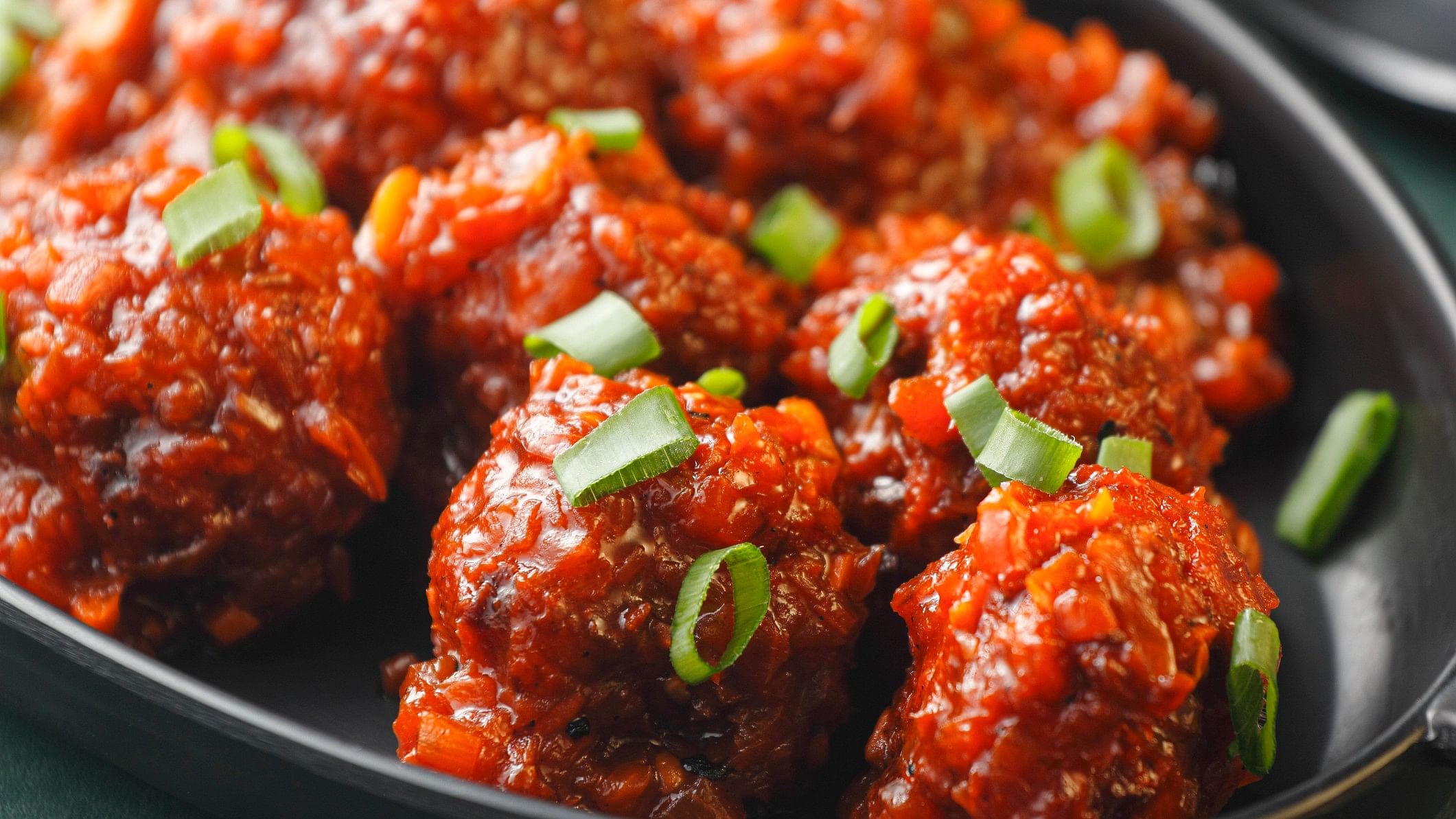
Representative image showing gobi manchurian.
Credit: iStock Photo
Bengaluru: Thirty-one gobi manchurian, 78 kebab, and 27 fruit and vegetable samples were found unsafe for consumption during statewide drives conducted by Food Safety and Standards Authority of India (FSSAI) in July.
The authorities have suspended the licences of four food business operators (FBOs), including a KFC outlet in Devanahalli, for violating the Food Safety and Standards Act, 2006.
Citing harmful health effects, the government banned the use of synthetic food dyes for gobi manchurian and cotton candy in March and for kebabs in June.
Despite this, the department found 31 of the total of 209 gobi manchurian samples analysed in July were deemed unsafe for consumption due to the presence of sunset yellow and carmoisine, Health and Family Welfare Minister Dinesh Gundu Rao said on Wednesday.
Similarly, 78 of 275 kebab samples were found unsafe due to sunset yellow and tartrazine and 27 of 266 fruit and vegetable samples analysed across the state were unsafe due to a high quantity of pesticide residues and fungus growth, according to data shared by the department.
In July, the department inspected 3,467 FBOs, sent notices to 986 of them to fix any shortcomings in quality and imposed fines on 132 operators for lacking cleanliness, collecting over Rs 4.93 lakh.
The department has collected 211 paneer, 67 khova and 246 cake samples for testing this month. Their results are awaited.
Rao also noted that 2,46,789 (96%) of 3,53,692 food business operators or entrepreneurs in Karnataka have been registered with the department while only 68% of the 1,06,895 operators have obtained licences
Statewide drive this Fri, Sat
The department will check food safety and quality in restaurants in district and taluk headquarters across the state. Officers will also check samples of meat, eggs and fish for harmful substances or poor quality. "Every month, we will focus on a few items to inspect their quality and share those reports with the public," Rao said.
Food sample testing kits
As many as 3,400 food sample testing kits will be put up in food courts, malls, restaurants and other public places to enable members of the public to check food quality themselves. A thousand kits have already been procured by the department.
Food samples collected since April: 11,011
Survey samples: 8,418
Legal samples: 2,593
Food samples collected in July 2024: 3,464
Survey samples: 2,753
Legal samples: 711